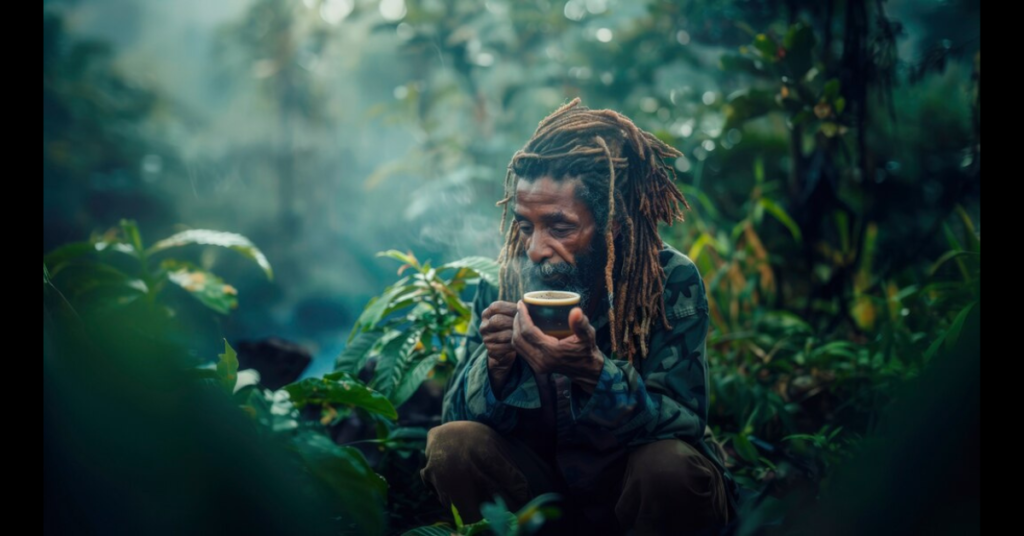Por o, an indigenous group residing primarily in the Amazon Basin, represents a significant cultural and historical segment of South America. This in-depth exploration will examine the Poró people, their history, culture, social structure, economic practices, interactions with the environment, and challenges in the modern world. The aim is to provide a comprehensive understanding of the Por o people and their unique way of life.
I. Historical Background of the Poró People
A. Origins and Early History
The origins of the Por o people, like many indigenous groups in the Amazon, are deeply rooted in the region’s pre-Columbian history. The Amazon Basin, home to a vast array of indigenous cultures, saw the development of complex societies long before European contact. Archaeological evidence suggests that the Poró people, along with their ancestors, have inhabited the Amazon Basin for thousands of years, adapting to its diverse and challenging environments.
B. Pre-Colonial Society
Before European colonization, the Poró people had established a well-organized society with intricate social structures, spiritual beliefs, and sustainable practices. They lived in harmony with the rainforest, utilizing its resources for food, medicine, and shelter. Social organization was typically based on kinship and communal living, with leadership roles often held by elders and spiritual leaders.
C. Impact of European Colonization
The arrival of Europeans in the 16th century had a profound impact on the Poró people. Colonization brought diseases, violence, and displacement, leading to significant population decline and cultural disruption. Despite these challenges, the Por o people have managed to preserve much of their cultural heritage and continue to resist external pressures.
II. Cultural Practices and Beliefs
A. Spiritual Beliefs and Practices
The spiritual beliefs of the Por o people are deeply intertwined with their natural environment. They believe in a complex system of spirits and deities that inhabit the forest, rivers, and skies. Shamans, or spiritual leaders, play a crucial role in maintaining the spiritual well-being of the community, conducting rituals, healing practices, and mediating with the spirit world.
1. Cosmology and Mythology
Por o cosmology is rich with myths and legends that explain the creation of the world, the origins of their people, and the natural phenomena around them. These stories are passed down orally from generation to generation, preserving the cultural identity and values of the Poró people.
2. Rituals and Ceremonies
Rituals and ceremonies are central to Por o spiritual life. These events mark important life stages such as birth, puberty, marriage, and death, as well as seasonal changes and hunting or planting cycles. Ceremonies often involve music, dance, and the use of sacred plants and substances.
B. Language and Oral Tradition
The Poró language is a vital aspect of their cultural identity. It is part of the larger linguistic diversity of the Amazon region and plays a crucial role in maintaining their oral traditions. Stories, songs, and historical accounts are passed down verbally, ensuring the transmission of knowledge and cultural values.
C. Art and Craftsmanship
Poró art and craftsmanship reflect their deep connection to the natural world. Traditional crafts include weaving, pottery, and beadwork, often adorned with symbols and motifs significant to their cultural heritage. These artistic expressions are not only functional but also serve as a means of preserving and transmitting cultural knowledge.
III. Social Structure and Organization
A. Kinship and Family Life
Kinship is the foundation of Poró social organization. Extended families live together in communal houses, sharing resources and responsibilities. Family ties are crucial for social cohesion, and kinship networks extend to include distant relatives and allied groups.
1. Role of Elders
Elders hold a respected position within Poró society. They are the keepers of traditional knowledge and play a vital role in decision-making, conflict resolution, and the education of younger generations.
2. Gender Roles
Gender roles in Poró society are defined but flexible. Men typically engage in hunting and fishing, while women are responsible for gathering, agriculture, and domestic duties. However, both men and women participate in cultural and spiritual activities, and there is a strong emphasis on cooperation and mutual support.
B. Political Organization
The political organization of the Poró people is based on communal decision-making and consensus. Leadership is often informal and situational, with individuals chosen for their wisdom, experience, and ability to mediate conflicts. This decentralized approach to governance reflects the egalitarian values of Poró society.
1. Community Assemblies
Community assemblies are the primary forum for decision-making. These gatherings allow all members to voice their opinions and participate in discussions, ensuring that decisions are made collectively and reflect the interests of the entire community.
2. Conflict Resolution
Conflict resolution within Poró society is based on mediation and reconciliation. Elders and respected community members play a crucial role in resolving disputes and maintaining social harmony. The emphasis is on restoring relationships rather than punitive measures.
IV. Economic Practices and Subsistence Strategies
A. Hunting and Fishing
Hunting and fishing are essential components of Poró subsistence strategies. The rich biodiversity of the Amazon provides a variety of game and fish species, which are hunted using traditional methods and tools. Sustainable practices and respect for the natural world are integral to their approach, ensuring that resources are not depleted.
B. Agriculture and Gathering
Agriculture and gathering complement hunting and fishing, providing a diverse and balanced diet. The Poró people practice shifting cultivation, growing crops such as manioc, maize, and bananas. They also gather wild fruits, nuts, and medicinal plants from the forest, utilizing their extensive knowledge of the local flora.
1. Agroforestry Practices
Agroforestry is a key aspect of Poró agriculture, integrating trees and shrubs into farming systems. This approach enhances biodiversity, soil fertility, and resilience to environmental changes, demonstrating the Poró’s deep understanding of their ecosystem.
C. Trade and Exchange
Trade and exchange have long been part of Poró economic practices, both within their communities and with neighboring groups. Goods such as crafts, food, and medicinal plants are exchanged, fostering social ties and cooperation. The Poró people also engage in barter and trade with external markets, adapting to changing economic landscapes.
V. Interaction with the Environment
A. Environmental Stewardship
The Poró people have a profound respect for their environment, viewing themselves as an integral part of the natural world. This stewardship is reflected in their sustainable practices, which ensure the long-term health of their ecosystem. Traditional ecological knowledge is passed down through generations, guiding their interactions with the environment.
1. Sustainable Hunting and Fishing
Sustainable hunting and fishing practices are essential for maintaining the balance of the ecosystem. The Poró people adhere to seasonal cycles and avoid overexploitation, ensuring that animal populations remain healthy and abundant.
2. Conservation of Biodiversity
The Poró people play a crucial role in conserving biodiversity in the Amazon. Their traditional practices and deep ecological knowledge contribute to the protection of numerous plant and animal species, many of which are not found anywhere else in the world.
B. Climate Change and Environmental Threats
Climate change and environmental threats pose significant challenges to the Poró people. Deforestation, mining, and industrial activities threaten their land and resources, disrupting their traditional way of life. Climate change also impacts weather patterns, affecting agricultural yields and the availability of game and fish.
1. Resilience and Adaptation
Despite these challenges, the Poró people demonstrate remarkable resilience and adaptability. They continue to innovate and find ways to sustain their livelihoods in the face of environmental changes. Community-based conservation initiatives and advocacy efforts are part of their strategies to protect their land and culture.
VI. Contemporary Issues and Challenges
A. Land Rights and Legal Recognition
Land rights and legal recognition are critical issues for the Poró people. Securing legal recognition of their ancestral lands is essential for protecting their way of life and ensuring their autonomy. Advocacy efforts and legal battles continue as they seek to assert their rights in the face of external pressures.
1. Government Policies and Legislation
Government policies and legislation play a significant role in shaping the future of the Poró people. While some policies support indigenous rights, others prioritize economic development at the expense of indigenous lands and resources. Navigating these complex legal landscapes is a constant challenge for the Poró.
B. Education and Cultural Preservation
Education is a double-edged sword for the Poró people. While formal education can provide valuable skills and opportunities, it can also lead to cultural erosion and assimilation. Balancing the benefits of education with the need to preserve their cultural heritage is a delicate task.
1. Bilingual and Intercultural Education
Bilingual and intercultural education programs are one approach to addressing this challenge. These programs integrate traditional knowledge and languages with formal education, empowering Poró youth to succeed in the modern world while maintaining their cultural identity.
C. Health and Well-being
Health and well-being are ongoing concerns for the Poró people. Access to healthcare services is often limited, and traditional medicine plays a crucial role in their health practices. However, the introduction of new diseases and changing environmental conditions pose significant health risks.
1. Integrating Traditional and Modern Medicine
Integrating traditional and modern medicine is a promising approach to improving health outcomes for the Poró people. Collaborative initiatives that respect and incorporate traditional knowledge while providing access to modern healthcare services can enhance overall well-being.
VII. The Future of the Poró People
A. Empowerment and Self-Determination
Empowerment and self-determination are essential for the future of the Poró people. Supporting their autonomy and capacity to make decisions about their land, resources, and cultural practices is crucial for their continued survival and flourishing.
1. Community-Led Development
Community-led development initiatives that prioritize the needs and aspirations of the Poró people can foster sustainable and inclusive growth. These initiatives often focus on education, healthcare, and economic opportunities that align with their cultural values and ecological knowledge.
B. Global Solidarity and Advocacy
Global solidarity and advocacy are vital for supporting the Poró people in their struggles. International awareness and support can amplify their voices and contribute to positive changes in policies and practices that affect their lives.
1. Partnerships and Alliances
Building partnerships and alliances with other indigenous groups, non-governmental organizations, and sympathetic governments can strengthen the Poró’s ability to advocate for their rights and protect their land and culture. Collaborative efforts can also share knowledge and strategies for resilience and adaptation.
Conclusion
The Por o people represent a rich and resilient culture deeply intertwined with the natural world of the Amazon Basin. Their history, cultural practices, social structures, and economic strategies reflect a profound connection to their environment and a commitment to sustainability and community well-being. Despite the significant challenges they face, the Por o people continue to demonstrate remarkable resilience and adaptability.
As the world becomes increasingly interconnected, it is crucial to recognize and support the rights and aspirations of indigenous peoples like the Por o. Their traditional knowledge and sustainable practices offer valuable insights for addressing global challenges such as biodiversity loss and climate change. Empowering the Poró people and other indigenous communities is not only a matter of justice but also an essential step towards a more sustainable and equitable future for all.







